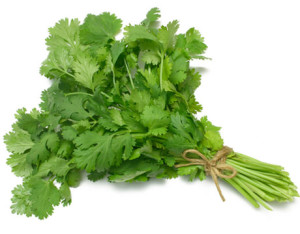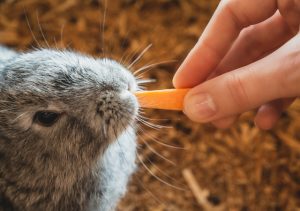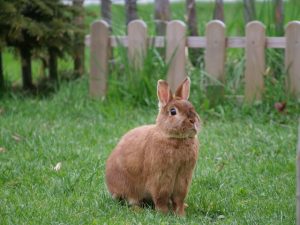
Just like many spices, cilantro is said to contain antioxidants that can bind heavy and unwanted metal particles in the body. It has also been shown that cilantro has properties that can fight against Salmonella; thus, giving its partaker a healthier digestive system. The fiber that it contains will help in the elimination of waste of your rabbit as well. Another way in which cilantro helps in digestion is that it prevents urinary infection. Excess exertion of intestinal gas can also be taken cared off just by simply eating moderate amount of its leaves. The essential oil and rich aroma of freshly picked cilantro act as an excellent appetizer. By its smell alone, digestive juices and enzymes in the stomach are stimulated. Its essential oil also contains antimicrobial agents that fights off common infections.
In addition, cilantro can help in the increase of high-density lipoprotein and decrease of triglycerides in the system. Simply speaking, it increases the amount of good cholesterol in the body and reduces bad cholesterol that is clogging the arteries and veins. As such, a healthy dosage of cilantro in your rabbit’s diet can keep it from being overweight and having a reduced probability of experiencing heart attack.
Can I Give My Rabbit Cilantro?
Yes, but add variety of food.
If your rabbit is still not yet fully grown, meaning, it has not yet reached three months, you should introduce cilantro along with other green vegetables gradually. When feeding it to your rabbit, it is best that its roots and stalk are removed because that’s where nutrients are concentrated. Add one leaf of cilantro at a time and if there is no intestinal upset, then add more during the next feeding time. If you want to know if your rabbit’s intestine is working fine, look at its excrement. A good sign that your rabbit’s digestive tract is not irritated with the cilantro is that if its stool is solid. If it stops eating or eliminating digested food for 12-24 hours, you should get a veterinarian immediately.
When you serve cilantro, make sure that you wash its leaves thoroughly. This is done so that pesticides will be washed off. Even if you bought it from an organic farm, there is still a tendency that it is littered with potentially harmful bacteria like E. coli. Washing can also add to the wetness of the leaves. Wet leaves are highly suitable for feeding since they increase the liquid content of your rabbit’s diet. By doing so, the digestive mechanism of your rabbit will continue running well, thus making the rabbit healthy and always comfortable.
Bear in mind also to serve fresh leaves only. Cilantro leaves spoil quickly when removed from its stalk and a rabbit is much more sensitive to spoiled food than us so extra caution is needed. Try smelling what you are going to serve first. If it smells stale then do not even think of serving it since it would make your rabbit constipated. On the other hand, if you do serve drying leaves, your rabbit will not pay much attention to it since it is not that desirable to the eyes.
Remember also that a mature rabbit needs to have at least four cups of varied vegetable a day. Its food should be given at set intervals so that your rabbit will not feel bloated. More often than not, the introduction of cilantro in your diet will be well-received. Cilantro has a strong smell and this characteristic will make your rabbit curious enough to try it. However, if you keep on feeding it with the same thing then it would easily get tired of it if it is the only green that is being fed to it. Another reason why cilantro should not be the only plant in your rabbit’s diet is to give your rabbit additional nutrients that cilantro cannot provide.
A good combination of leafy elements in your rabbit’s diet may include dark leaf lettuce, asparagus, parsley, basil, dill, mint, spinach and celery. They should be no more than one inch so that there will be no particles stuck on your rabbit’s molars.
Ideally, your rabbit should have not just vegetables but also hays and pellets. Hays are the favorite of rabbits in general. They can be fed in unlimited amount. Though pellets contain vitamins, mineral and trace nutrients, the fibers that are in hays are much more important as it regulates the intestinal health of your rabbit.
As a general rule, food variation will keep your rabbit healthy and happy.





